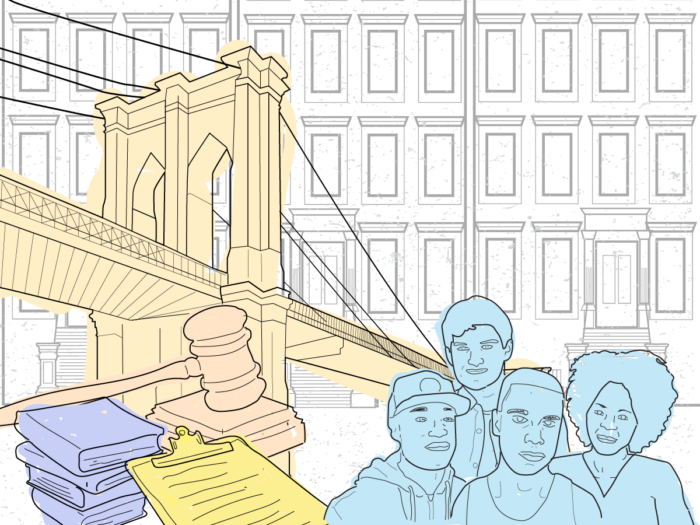
Since becoming CASES’ first CEO in 1990, I’ve been telling people that the front door to CASES’ programs is the court. For many years this was an accurate metaphor. As one of New York City’s leading providers of alternative-to-incarceration (ATI) programs, CASES has long worked closely with judges and attorneys to identify and advocate for defendants who might be safely diverted from jail or prison to services and supervision in the community.
The rationale behind ATI programs is clear: many people who become involved in the criminal justice system have better short- and long-term outcomes if—instead of being sent away to jail or prison—they remain in the community and engage in services to help them achieve stability, attain skills, and access opportunity. Most ATIs are less expensive than jail or prison and also more effective in protecting public safety—most produce lower recidivism rates than jail or prison. At one of his final press conferences as Mayor, Michael Bloomberg highlighted the role of ATIs in the City’s remarkable achievement of both increased public safety and declining incarceration. Recently, some City officials have even spoken openly of a topic historically taboo among most mainstream politicians: closing Rikers Island.
Even as we have demonstrated the wide-reaching benefits of ATIs, CASES has continued to evolve. While we remain committed to providing and expanding effective ATIs, CASES has also expanded its reach across the range of a person’s potential involvement in the justice system. At locations across New York City, CASES staff work every day to prevent
- first arrests for at-risk youth
- formal charges and the attainment of a criminal record for youth who have been arrested
- detention at Rikers Island while awaiting trial for low-risk people who cannot afford bail
- prolonged detention and/or incarceration of 1) high-need young people facing felony charges in the adult system and 2) adults with behavioral health needs including serious mental illness
- further involvement in the justice system for people returning to the community following jail or prison
The rationale behind this evolving approach is straightforward: to intervene at the earliest possible point to disrupt the cycle of arrest, incarceration, and recidivism.
As you’ll read on this site, over the past 15 years-plus CASES has developed a special expertise in serving justice-involved men and women who have serious mental illness. In 2000, before there was widespread recognition of the harm of using correctional facilities as institutions of last resort for people with mental illness, CASES established New York City’s first ATI for adults with serious mental illness. The success of this program—the Nathaniel Project—was unprecedented. In the intervening years, CASES has expanded ATIs for adults with behavioral health needs, including through gender-specific ATIs for women. In 2014 we went a step further, opening the Nathaniel Clinic. For many people, the front door to CASES is now the front door of this Harlem-based outpatient mental health clinic.
I could go on—so much exciting is happening at CASES while so much work remains to be done to achieve our vision for a city in which a person’s previous criminal involvement or behavioral health needs do not limit the opportunity to realize his or her best life. I hope you’ll enjoy learning about CASES and the people in our programs. As you explore, you’ll find a variety of ways to contact us. Please reach out and let us know your questions or if you’d like to help. The simplest way to start is to send an email to info@cases.org.
Thank you for visiting the new www.cases.org.

